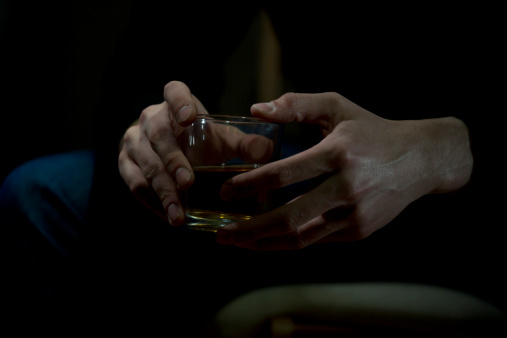 Not all divorces are related to alcohol abuse, but the percentage is fairly high. I don’t have any scientific study, but my own experience of observing thousands of divorces over three decades, I have found that nearly half of all divorces involve, at minimum, allegations of some type of alcohol abuse. From observing the interactions in these cases, as well as working with professionals in these areas, here are the most important observations I have made:
If you think there is a problem, you are probably right.
If one party truly believes there is alcohol abuse in the marriage, there is a very high probability that they are right. Yes, it is true that divorce can lead to many false allegations, particularly if you are in an adversarial divorce. However, while divorcing couples often exaggerate most flaws of the other spouse, I have found that, largely because of co-dependency dynamics, many spouses actually under report alcohol abuse.
If your spouse thinks you have a problem, you certainly have a problem.
How can I be certain? Easy. First, as indicated above, if your spouse truly thinks you have a problem, there is a high probably they are right. Moreover, even if they are wrong, their belief that you have a problem is, by itself, a major problem. In either case, the solution often points to undergoing a thorough and honest alcohol assessment. If you can get at the truth, everyone wins.
A spouse stopping or cutting back alcohol use during the divorce proves little. Often the spouse believed to have an alcohol problem will either stop using alcohol or cut back on alcohol use as the threat of divorce draws near. While this may (or may not) be a welcome reprieve for the family, it generally means very little in terms of determining the existence of a problem. Indeed, most chemical dependency counselors see frequent failed attempts to stop or cut back as being one of the indicators of alcoholism. Moreover, for most alcoholics, stopping drinking does not necessarily end the alcoholic behavior.
Sometimes alcohol use during divorce can be “situational”.
Divorce usually does not come up suddenly, but rather creeps into homes over months or years. As it creeps closer, the sadness or fear can sometimes cause non-alcoholics to temporarily abuse alcohol during this difficult time. While temporary abuse of alcohol still has serious consequences the long-term impact can be quite different than addressing alcoholism.
If alcohol is an issue, you need a process in which honesty can be rewarded. Divorce processes differ. Traditional divorces that operate in the shadow of the courthouse can sometimes seem to punish honesty in the sense that the person suspected of alcohol abuse feels compelled to either deny or minimize the allegations for fear of losing time with their children. On the other hand, processes such as Collaborative Law or mediation, by operating outside of court, can provide a safe place where alcohol use can be addressed as a health issue and not as a piece of evidence. To learn more about these options go to www.Collaborativelaw.org or www.divorcechoice.com.
Not all divorces are related to alcohol abuse, but the percentage is fairly high. I don’t have any scientific study, but my own experience of observing thousands of divorces over three decades, I have found that nearly half of all divorces involve, at minimum, allegations of some type of alcohol abuse. From observing the interactions in these cases, as well as working with professionals in these areas, here are the most important observations I have made:
If you think there is a problem, you are probably right.
If one party truly believes there is alcohol abuse in the marriage, there is a very high probability that they are right. Yes, it is true that divorce can lead to many false allegations, particularly if you are in an adversarial divorce. However, while divorcing couples often exaggerate most flaws of the other spouse, I have found that, largely because of co-dependency dynamics, many spouses actually under report alcohol abuse.
If your spouse thinks you have a problem, you certainly have a problem.
How can I be certain? Easy. First, as indicated above, if your spouse truly thinks you have a problem, there is a high probably they are right. Moreover, even if they are wrong, their belief that you have a problem is, by itself, a major problem. In either case, the solution often points to undergoing a thorough and honest alcohol assessment. If you can get at the truth, everyone wins.
A spouse stopping or cutting back alcohol use during the divorce proves little. Often the spouse believed to have an alcohol problem will either stop using alcohol or cut back on alcohol use as the threat of divorce draws near. While this may (or may not) be a welcome reprieve for the family, it generally means very little in terms of determining the existence of a problem. Indeed, most chemical dependency counselors see frequent failed attempts to stop or cut back as being one of the indicators of alcoholism. Moreover, for most alcoholics, stopping drinking does not necessarily end the alcoholic behavior.
Sometimes alcohol use during divorce can be “situational”.
Divorce usually does not come up suddenly, but rather creeps into homes over months or years. As it creeps closer, the sadness or fear can sometimes cause non-alcoholics to temporarily abuse alcohol during this difficult time. While temporary abuse of alcohol still has serious consequences the long-term impact can be quite different than addressing alcoholism.
If alcohol is an issue, you need a process in which honesty can be rewarded. Divorce processes differ. Traditional divorces that operate in the shadow of the courthouse can sometimes seem to punish honesty in the sense that the person suspected of alcohol abuse feels compelled to either deny or minimize the allegations for fear of losing time with their children. On the other hand, processes such as Collaborative Law or mediation, by operating outside of court, can provide a safe place where alcohol use can be addressed as a health issue and not as a piece of evidence. To learn more about these options go to www.Collaborativelaw.org or www.divorcechoice.com.
Zooming into a Stress-Free Divorce: How Zoom Meetings Offer Comfort and Convenience
In recent years, how we handle many of life’s pivotal moments, including the sensitive divorce process, has shifted dramatically. The introduction of tools like Zoom into the collaborative divorce process has transformed how meetings are conducted and brought...



